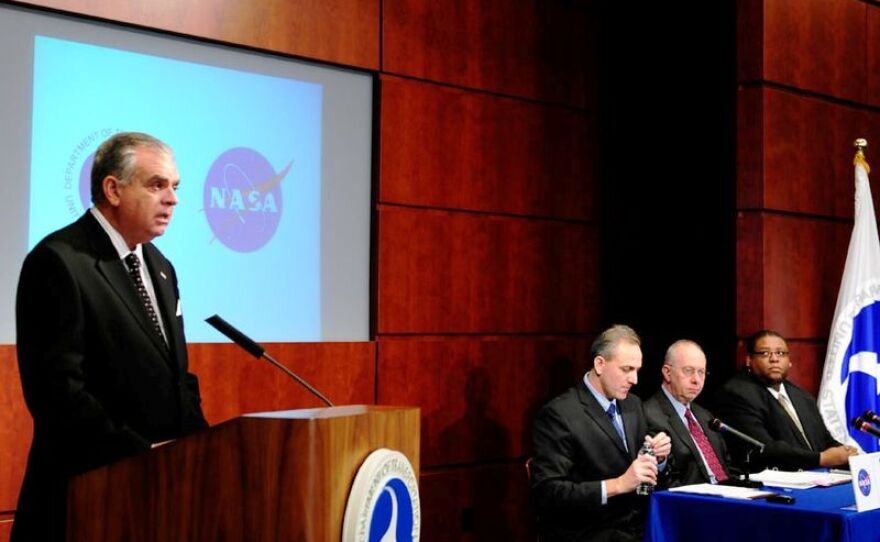"The jury is back, the verdict is in."
That’s how Transportation Secretary Ray LaHood announced that faulty electronics played no role in cases of unintended acceleration in Toyota cars. It’s unequivocal good news for a company attempting to rebuild its reputation.
Last year, Toyota recalled millions of its cars for gas pedal defects that could cause unintended acceleration.
Those recalls shook the company’s reputation for safety like an earthquake.
Dean Stewart is Service Manager for Victory Toyota in Canton, Michigan. The dealership's huge - and nearly empty - service garage, has only one car on a lift that was brought in under a recall. But last year at this time, the place was bustling:
"I mean we were open 7 days a week, we had two shifts, we were working 90 hours a week just to make sure we could take care of our customers," says Stewart.
Toyota admitted that in some cases loose floor mats could get trapped on gas pedals, and that some gas pedals had become “sticky,” and wouldn’t always fully release.
Meanwhile, thousands of lawsuits alleged another reason for cars speeding out of control: electronic throttle control systems, triggered, perhaps, by electromagnetic interference.
NASA scientists found no evidence for those claims. They did find there was “pedal misapplication.” Or, as Dean Stewart puts it, less obliquely, "Driver error."
In other words, drivers hitting the gas instead of the brake.
Now, that doesn’t mean any Toyota car driver who hit the wrong pedal is necessarily inept. Michelle Krebs is an auto analyst with Edmunds:
"What we always need to think about is why is there driver error. A lot of times that is caused by design. And Toyota indeed went back to the drawing board and did some redesign on its pedals," says Krebs.
So, maybe some people will file new lawsuits claiming their mistake was really Toyota’s fault.
But the lawsuits alleging electronic defects are vulnerable to a motion to dismiss by Toyota.
John Pottow, a law professor at the University of Michigan, says, "In terms of these lawsuits, I don’t want to say the lawsuits are dead, but I think it’s time when you have that awkward conversation about a living will."
Getting the lawsuits dismissed would be one less challenge for Toyota. It still has a few left.
The recalls have cost $ 2 billion so far, on top of a record $49 million fine.
Currency fluctuations are hurting profits, and Toyota’s newest cars are being launched later than its competitors like Ford, Hyundai, and General Motors. But Edmunds analyst Michelle Krebs sees a silver lining. She says Toyota is learning from the mistakes it made even before the recalls:
"They didn’t listen to what was going on in the United States, back in Japan where all the decisions were made. They are trying to fix that," says Krebs.
Toyota says it has rededicated itself to the values that made it the number one global automaker.
What’s unclear is whether Toyota can regain the almost bulletproof reputation for safety it once had in this country.





